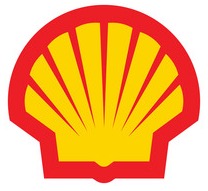Senior executive directors of Royal Dutch Shell Plc had advance sight some days ago of a draft of the article below. It is a follow-up article by a whistleblower whose identity is known to us.
The World’s Largest Gas Flaring Environmental Disaster Shell Exposing The World Bank Group to Corruption & US Sanctions
Shell Exposing The World Bank Group to Corruption & US Sanctions
 Under Shell’s egregious stewardship, Iraq is literally burning billions of dollars in lost revenue, and the country’s power plants are being deprived of the much-needed fuel supply to end Iraq’s chronic power crisis. The power outages have been the main destabilizing force in the country, which have also often led to mass protesting, civil unrest, and countless civilian casualties.
Under Shell’s egregious stewardship, Iraq is literally burning billions of dollars in lost revenue, and the country’s power plants are being deprived of the much-needed fuel supply to end Iraq’s chronic power crisis. The power outages have been the main destabilizing force in the country, which have also often led to mass protesting, civil unrest, and countless civilian casualties.
By: The Iraqi Governance Revolt & Systemic Overhaul!
Introduction
Iraq holds the 12th largest natural gas reserve in the world, however, the country equally represents 12% of global gas flaring, “suggesting there may be systematic and structural barriers to reducing gas flaring practices,” according to the latest Global Gas Flaring Tracker Report produced by The World Bank Group.
Although officially signed in 2011, Royal Dutch Shell (Shell) formalized the establishment of its gas monopoly in Iraq, the $17 billion Basrah Gas Company (BGC), in May 2013, which also gave birth to the so called ‘world’s largest flare reduction program’.


 Rania El Gamal
Rania El Gamal

 Reuters Staff: MARCH 23, 2018
Reuters Staff: MARCH 23, 2018

 By
By 







 Rania El Gamal
Rania El Gamal
 Nov. 8, 2017 11:33 AM ET
Nov. 8, 2017 11:33 AM ET











 Jaclyn Jaeger
Jaclyn Jaeger









 By
By 




















 By
By  Sarfaraz A. Khan
Sarfaraz A. Khan
























 Shell’s Arctic voyage marks beginning of peak oil era
Shell’s Arctic voyage marks beginning of peak oil era
 Shell cuts 2015 capex, sees downstream downturn
Shell cuts 2015 capex, sees downstream downturn
 * Iraq seeks to stem losses from falling oil prices
* Iraq seeks to stem losses from falling oil prices






















 Royal Dutch Shell conspired directly with Hitler, financed the Nazi Party, was anti-Semitic and sold out its own Dutch Jewish employees to the Nazis. Shell had a close relationship with the Nazis during and after the reign of Sir Henri Deterding, an ardent Nazi, and the founder and decades long leader of the Royal Dutch Shell Group. His burial ceremony, which had all the trappings of a state funeral, was held at his private estate in Mecklenburg, Germany. The spectacle (photographs below) included a funeral procession led by a horse drawn funeral hearse with senior Nazis officials and senior Royal Dutch Shell directors in attendance, Nazi salutes at the graveside, swastika banners on display and wreaths and personal tributes from Adolf Hitler and Reichsmarschall, Hermann Goring. Deterding was an honored associate and supporter of Hitler and a personal friend of Goring.
Royal Dutch Shell conspired directly with Hitler, financed the Nazi Party, was anti-Semitic and sold out its own Dutch Jewish employees to the Nazis. Shell had a close relationship with the Nazis during and after the reign of Sir Henri Deterding, an ardent Nazi, and the founder and decades long leader of the Royal Dutch Shell Group. His burial ceremony, which had all the trappings of a state funeral, was held at his private estate in Mecklenburg, Germany. The spectacle (photographs below) included a funeral procession led by a horse drawn funeral hearse with senior Nazis officials and senior Royal Dutch Shell directors in attendance, Nazi salutes at the graveside, swastika banners on display and wreaths and personal tributes from Adolf Hitler and Reichsmarschall, Hermann Goring. Deterding was an honored associate and supporter of Hitler and a personal friend of Goring.

 Deterding was the guest of Hitler during a four day summit meeting at Berchtesgaden. Sir Henri and Hitler both had ambitions on Russian oil fields. Only an honored personal guest would be rewarded with a private four day meeting at Hitler’s mountain top retreat.
Deterding was the guest of Hitler during a four day summit meeting at Berchtesgaden. Sir Henri and Hitler both had ambitions on Russian oil fields. Only an honored personal guest would be rewarded with a private four day meeting at Hitler’s mountain top retreat.


















 IN JULY 2007, MR BILL CAMPBELL (ABOVE, A RETIRED GROUP AUDITOR OF SHELL INTERNATIONAL SENT AN EMAIL TO EVERY UK MP AND MEMBER OF THE HOUSE OF LORDS:
IN JULY 2007, MR BILL CAMPBELL (ABOVE, A RETIRED GROUP AUDITOR OF SHELL INTERNATIONAL SENT AN EMAIL TO EVERY UK MP AND MEMBER OF THE HOUSE OF LORDS: 



























 MORE DETAILS:
MORE DETAILS:













































































 A head-cut image of Alfred Donovan (now deceased) appears courtesy of The Wall Street Journal.
A head-cut image of Alfred Donovan (now deceased) appears courtesy of The Wall Street Journal.




































































